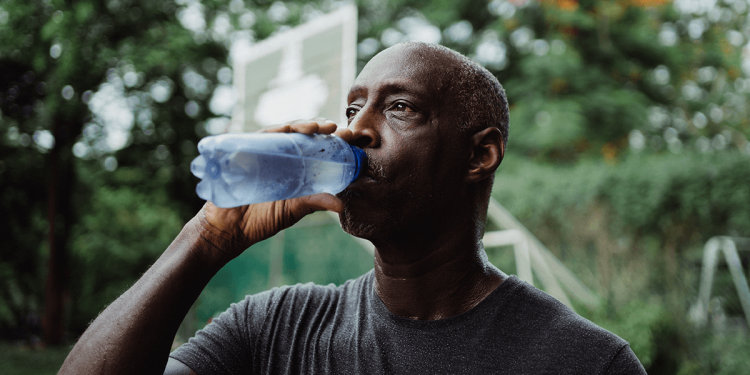Water is essential for life. From regulating body temperature to aiding digestion and carrying nutrients to cells, proper hydration plays a key role in your overall health and well-being. But how much water should you be drinking each day?
The general rule: 8×8
You’ve probably heard the common advice: “Drink eight 8-ounce glasses of water a day.” That’s about 2 litres, or half a gallon. While it’s a simple guideline and a good starting point, it’s not one-size-fits-all.
Factors that influence your water needs
The amount of water your body needs depends on several factors, including:
- Age and sex: Men typically require more water than women. It has been recommended that about 7 litres (125 ounces) per day for men and 2.7 litres (91 ounces) for women, from all beverages and foods combined.
- Body weight and activity level: The more you weigh or the more active you are, the more water you’ll need. Physical activity leads to fluid loss through sweat, so it’s important to replenish frequently.
- Climate and environment: Hot or humid conditions can make you sweat more, increasing your fluid needs. High altitudes also tend to cause quicker dehydration.
- Diet: If your diet includes a lot of salty, spicy, or high-protein foods, you may need more water to help your kidneys process these nutrients. On the flip side, eating fruits and vegetables (which are rich in water) can contribute to your hydration.
- Health conditions: Fever, vomiting, diarrhoea, infections, and certain medical conditions (like kidney stones or urinary tract infections) can increase your hydration needs.
Signs you’re not drinking enough
Dehydration can be subtle at first. Here are common signs that you need to drink more water:
- Dry mouth or lips
- Fatigue
- Headaches
- Dark yellow urine
- Dizziness
- Decreased urination
A good rule of thumb: If you’re rarely thirsty and your urine is light yellow or clear, you’re likely well-hydrated.
Can you drink too much water?
Yes — although rare, overhydration or water intoxication can be dangerous, leading to a condition called hyponatremia (low sodium levels in the blood). This typically happens when you drink excessive amounts of water in a short time, especially during endurance sports without electrolyte balance.
Tips to stay hydrated
- Start your day with a glass of water.
- Carry a refillable water bottle.
- Set reminders to drink water regularly.
- Eat water-rich foods like cucumbers, oranges, and watermelon.
- Drink a glass of water before each meal.
No magic number fits everyone, but staying aware of your body’s signals and adapting your water intake to your lifestyle is key. Use thirst and urine colour as natural indicators — and when in doubt, reach for that glass of water. Your body will thank you.













